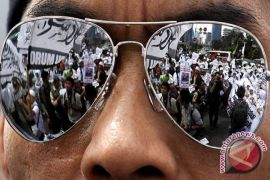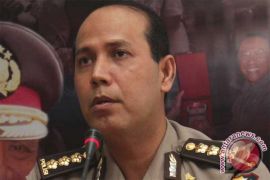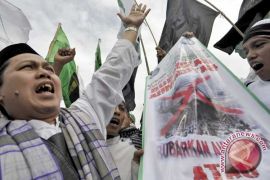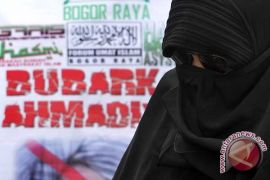Jakarta governor Fauzi Bowo said here on Monday the decision was made following an appeal from the coordinating minister for political, security and legal affairs Djoko Suyanto for a profound study and comprehensive, holistice and substantial discussion to be made before issuing it.
"So the directives are clear that no bylaw or a governor`s regulation or any regulation that runs against the constitution. And we think the present joint ministerial decree is enough for it," Fauzi said.
He said the joint ministerial decree known by its local acronym as SKB was sufficient for banning the activities of Ahmadiyah, adding what was needed was for stakeholders including apparatus on the ground to learn it in detail.
"We will instruct its familiarization again, its spirit and soul and details of the joint decree," he said.
Fauzi said the Jakarta provincial government had indeed the responsibility to maintain order, security, harmony and cohesiveness in the community and nationhood but with regard to religious issues they are under the authorities of the central government in this case the ministry of religious affairs.
"So my authority as representative of the central government in the region is more proactively informing things linked to religious elements in the framework of building harmonious relations among different religious followers," he said.
In view of that the Jakarta provincial government would ask local religious affairs ministry offices to be more proactive in presenting information about religious issues to the public in the framework of building harmonious relations among different religious followers.
Home affairs minister Gamawan Fauzi earlier said he needed to ask for inputs from various parties to find the right solution of the Ahmadiyah issue.
"We collect inputs from many parties. So far we have used SKB. For the time being we will study it, find the right solution," he said.
Gamawan said he had invited mass organizations in stages to collect inputs from them about the issue. The government needs inputs from Islamic organizations because the issue is related to Moslems, he said.
"That is in terms of organizational aspects. We will also consider the aspects of statehood. In connection with that we must take into consideration regulations, the 1945 constitution, human rights, religions as well as the PKB," he said.
The House of Representatives (DPR) meanwhile has collected inputs from various sides to study and understand totally the existence of Ahmadiyah and its process of propagation.
"We wish to get a full knowledge of Ahmadiyah from two experts," chairman of DPR`s Commission VII Abdul Kadir Karding said here on Monday with regard to the hearing held with KH Amin Djmaluddin from the Islamic Study and Research Institute (LPPI) and Atho Muczhar, the former chairman of the research and development of the ministry of religious affairs.(*)
Editor: Aditia Maruli Radja
Copyright © ANTARA 2011






